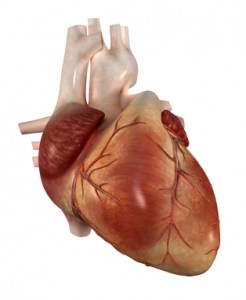Vitamin D Has More Benefits Than Previously Thought
 Vitamin D has long been known as an important vitamin for bone health, preventing conditions such as osteoporosis and rickets. More recently, research suggests that vitamin D may also protect against conditions such as cancer, heart failure, diabetes, respiratory tract infections, and autoimmune disease.
Vitamin D has long been known as an important vitamin for bone health, preventing conditions such as osteoporosis and rickets. More recently, research suggests that vitamin D may also protect against conditions such as cancer, heart failure, diabetes, respiratory tract infections, and autoimmune disease.
Many Americans have low vitamin D or a vitamin D deficiency. The human body produces vitamin D in large amounts when the skin is exposed to ultraviolet B rays in sunlight. Vitamin D can also be absorbed from vitamin D–fortified foods such as dairy products, some orange juice, and cereals. Some foods such as fatty fish, beef liver, and egg yolks naturally contain some vitamin D, but it is difficult to get enough vitamin D just from consuming these foods.
Low mood or seasonal affective disorder (SAD), in which people feel depressed during winter periods of limited exposure to sunshine, have been linked to low vitamin D.
Other symptoms of low vitamin D vary but can include pain in the joints, bones, or muscles; fatigue; and breathing problems.
Editor’s Note: A few small studies have suggested that 1,500 IU per day of vitamin D supplements can help depressed mood, even in those with normal vitamin D levels. Several studies have indicated that children or adolescents with psychiatric disorders are especially likely to be vitamin D–deficient. Another study found that higher amounts of vitamin D (4,000 IU) could improve cognition in healthy volunteers more than lower doses could. Vitamin D also improved cognition in people with multiple sclerosis and in those with the autoimmune disease Hashimoto’s thyroiditis.
Marker of Heart Failure May Predict Brain Deterioration
 A protein released into the blood in response to heart failure may be able to predict brain deterioration before clinical symptoms appear. The protein, N-terminal pro-B-type natriuretic peptide (NT-proBNP), is released when cardiac walls are under stress. High levels of NT-proBNP in the blood are a sign of heart disease. A 2016 Dutch study indicated that high levels of NT-proBNP in the blood are also linked to smaller brain volume, particularly small gray matter volume, and to poorer organization of the brain’s white matter. The study by researcher Hazel I. Zonneveld and colleagues, published in the journal Neuroradiology, assessed heart and brain health in 2,397 middle-aged and elderly people with no diagnosed heart or cognitive problems.
A protein released into the blood in response to heart failure may be able to predict brain deterioration before clinical symptoms appear. The protein, N-terminal pro-B-type natriuretic peptide (NT-proBNP), is released when cardiac walls are under stress. High levels of NT-proBNP in the blood are a sign of heart disease. A 2016 Dutch study indicated that high levels of NT-proBNP in the blood are also linked to smaller brain volume, particularly small gray matter volume, and to poorer organization of the brain’s white matter. The study by researcher Hazel I. Zonneveld and colleagues, published in the journal Neuroradiology, assessed heart and brain health in 2,397 middle-aged and elderly people with no diagnosed heart or cognitive problems.
Researchers are working to clarify the relationship between cardiac dysfunction and preliminary brain disease, but researcher Meike Vernooij says it is likely cardiac dysfunction comes first and leads to brain damage. Measuring biomarkers such as NT-proBNP may help identify brain diseases such as stroke and dementia earlier and allow for earlier treatment and lifestyle changes that can slow or reverse the course of disease.
Possible Heart Failure Risk with Pramipexole
We’ve written before about the drug pramipexole, which is typically used to treat Parkinson’s disease and restless legs, but can also improve depressed mood and cognition in those with bipolar disorder. The Federal Drug Administration (FDA) published a warning in 2012 that the drug may increase risk of heart failure, though more research is needed to confirm this link. In a review of existing studies, the FDA found that heart failure occurred more often in participants taking pramipexole than those taking placebo, but the finding did not reach statistical significance.


